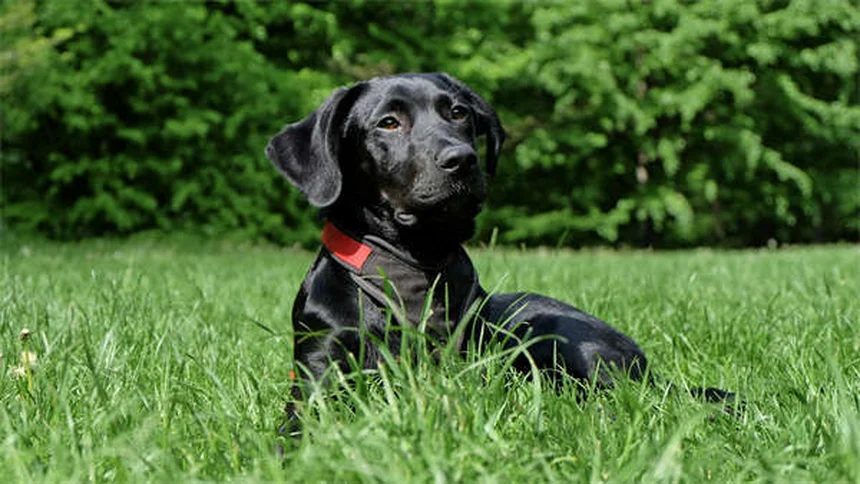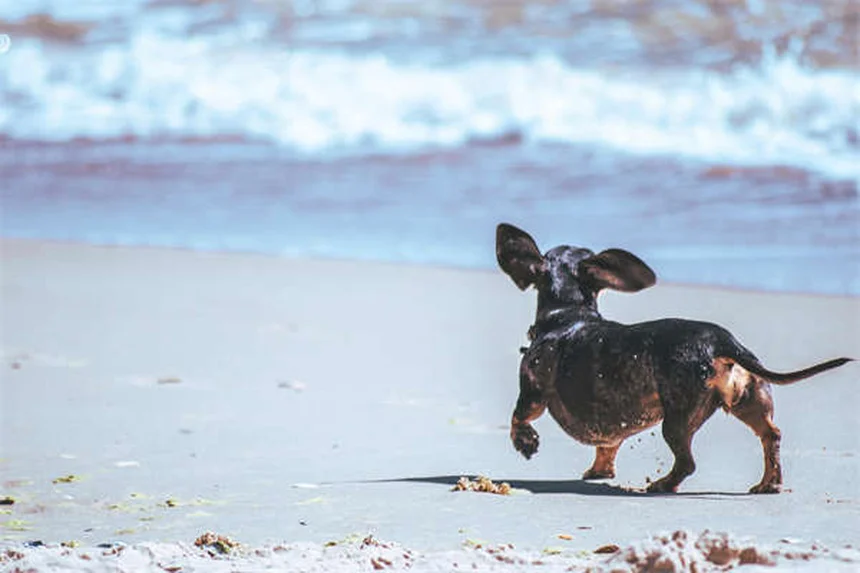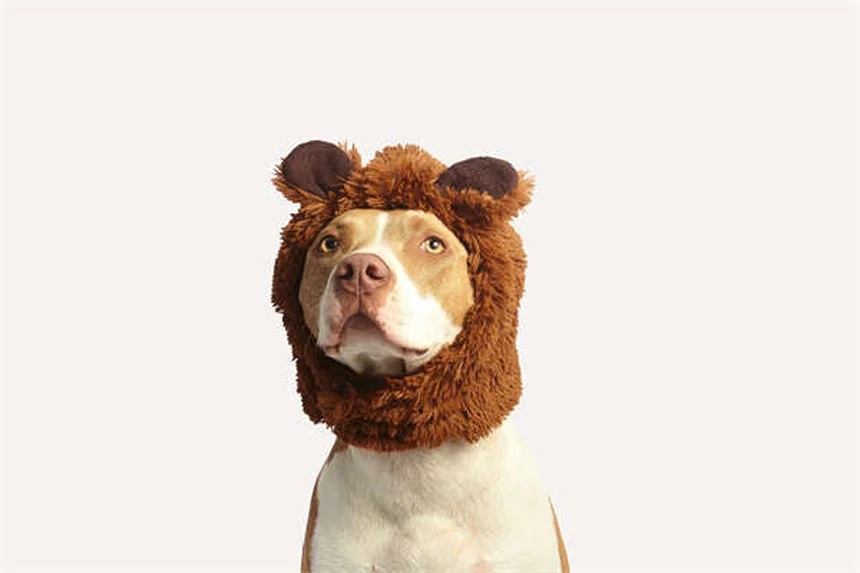What makes Japanese dog breeds so special? The answer is simple: they combine unique beauty, fascinating histories, and personalities you won't find anywhere else. From the famous Shiba Inu to rare gems like the Kai Ken, Japan has given us some of the most remarkable canine companions on earth.I've spent years studying these breeds, and let me tell you - whether you're looking for a loyal guardian like the Akita or an energetic partner like the Kishu Ken, there's a perfect Japanese dog for every lifestyle. What really sets them apart is their unmatched combination of intelligence and independence - traits bred into them over centuries.In this guide, we'll explore everything from the Shiba's legendary scream to why the Tosa needs special training. You'll discover which breeds fit apartment living (hint: maybe not the Hokkaido!) and which make ideal jogging buddies. Let's dive into the wonderful world of Japanese dogs together!
E.g. :5 Most Common Dog Cancers: Symptoms & Treatments You Should Know
- 1、Meet Japan's Hidden Canine Gems
- 2、The Noble Akita: Loyalty Personified
- 3、The Japanese Chin: Royalty in Dog Form
- 4、The Japanese Spitz: Fluffiness Defined
- 5、The Tosa: Japan's Gentle Giant
- 6、Kishu Ken: The Hunter's Companion
- 7、Japanese Terrier: Small But Mighty
- 8、Shikoku: Japan's Best Kept Secret
- 9、Hokkaido: The Bear Hunter Turned Cuddler
- 10、Kai Ken: Japan's Striped Wonder
- 11、Which Japanese Breed Fits Your Lifestyle?
- 12、The Cultural Significance of Japanese Dog Breeds
- 13、The Unique Training Approach for Japanese Breeds
- 14、The Rising Popularity of Japanese Breeds Worldwide
- 15、Health Considerations Specific to Japanese Breeds
- 16、Japanese Dog Breeds in Competitive Sports
- 17、FAQs
Meet Japan's Hidden Canine Gems
You might think you know all about Japanese dogs, but trust me - there's way more to discover! Japan has given us some of the most fascinating dog breeds, each with unique personalities and histories that'll make you say "wow!" Let's dig into these amazing pups together.
The Shiba Inu: Japan's Feisty Little Icon
That famous "doge" meme dog? Yep, that's the Shiba! But there's so much more to this breed than internet fame.
Weighing just 17-23 pounds, these compact powerhouses were originally bred to hunt wild boar - can you believe that? Their intelligence and independence make them fascinating companions, but be warned: they need plenty of mental stimulation. I've seen bored Shibas develop some... creative ways to express frustration (like their legendary "Shiba scream").
Why Shibas Might Not Be Your Apartment's Best Friend
Here's the thing about Shibas - they're basically the drama queens of the dog world. While adorable, their vocal nature means apartment living might not be ideal. Proper exercise and engagement are absolutely crucial unless you want to explain strange noises to your neighbors!
The Noble Akita: Loyalty Personified
 Photos provided by pixabay
Photos provided by pixabay
More Than Just a Big Fluffy Face
Picture this: a majestic, powerful dog with a plush coat and curled tail that could double as a feather duster. That's the Akita! These gentle giants were originally hunting companions, but today they're best known for their unshakable loyalty.
Ever heard of Hachiko? This famous Akita waited nearly a decade at a train station for his owner who had passed away. Now that's devotion! But here's something interesting - while fiercely loyal to family, they can be reserved with strangers. Proper socialization is key.
Akita Care: What You Need to Know
Thinking about bringing an Akita into your life? Let's compare some important factors:
| Factor | Akita | Average Dog |
|---|---|---|
| Grooming Needs | High (double coat) | Medium |
| Exercise Requirements | 60+ minutes daily | 30-45 minutes |
| Trainability | Moderate (independent) | Varies |
The Japanese Chin: Royalty in Dog Form
A Breed Fit for Emperors
Okay, full disclosure - these little guys technically came from China first. But Japanese nobles perfected them into the adorable flat-faced companions we know today. With their silky coats and expressive eyes, they basically look like living stuffed animals!
Here's a fun fact: despite their luxurious fur, Chins only need brushing 1-2 times weekly. And their personalities? Pure gold - affectionate, playful, and full of quirks that'll keep you entertained for hours.
The Japanese Spitz: Fluffiness Defined
 Photos provided by pixabay
Photos provided by pixabay
More Than Just a Big Fluffy Face
Imagine the fluffiest cotton ball you've ever seen. Now imagine it wagging its tail at you. That's the Japanese Spitz! These energetic little charmers love learning tricks and being the center of attention.
But here's the catch - that gorgeous white coat comes with maintenance. During shedding seasons (spring and fall), you'll basically be living in a snowstorm of fur. Daily brushing becomes your new hobby. Worth it? Absolutely!
The Tosa: Japan's Gentle Giant
Big Dog, Bigger Heart
Weighing up to 200 pounds, the Tosa is Japan's largest native breed. Their history is complicated (they were bred for dog fighting), but with proper training and socialization, they transform into calm, devoted companions.
Did you know that despite their size, well-raised Tosas can be incredibly gentle with children? It's all about that positive reinforcement training from puppyhood. Early socialization makes all the difference!
Kishu Ken: The Hunter's Companion
Energy to Spare
If you're looking for a jogging buddy, meet the Kishu Ken! Bred for hunting, these dogs have incredible stamina and love pleasing their humans. They're social butterflies too - just maybe not with smaller pets (that prey drive is strong!).
Here's something interesting - while friendly, they maintain that classic Japanese dog independence. Training requires patience, but the bond you'll build is absolutely worth the effort.
Japanese Terrier: Small But Mighty
 Photos provided by pixabay
Photos provided by pixabay
More Than Just a Big Fluffy Face
Unlike their fluffy cousins, Japanese Terriers sport short coats that barely need brushing. But don't let their size fool you - these are alert, athletic little dogs packed with personality!
Ever met a terrier before? Then you know what you're in for - intelligence, stubbornness, and endless entertainment. Consistent positive training is key, but the payoff is an incredibly loyal companion.
Shikoku: Japan's Best Kept Secret
The Rare Gem
Here's a question: have you ever actually seen a Shikoku in person? Probably not - they're one of Japan's rarest breeds! Originally wild boar hunters, these energetic dogs love nothing more than chasing... well, anything that moves.
If you're lucky enough to own one, remember this: secure fencing is non-negotiable. That hunting instinct is strong, and squirrels are basically nature's chew toys to a Shikoku!
Hokkaido: The Bear Hunter Turned Cuddler
From Wilderness to Your Living Room
Named after Japan's northernmost island, these spitz-type dogs were originally bred to hunt bears. Today? They're more likely to be found snuggling on your couch - as long as you're there too!
Separation anxiety can be an issue with Hokkaidos. They thrive in active families where someone's usually around. Perfect if you work from home or love outdoor adventures together!
Kai Ken: Japan's Striped Wonder
The Tiger Dog
Meet Japan's "Tiger Dog" - their brindle coats give them wild-looking stripes that are absolutely stunning. Like the Hokkaido, they love being outdoors with their humans.
Here's something cool: their intelligence means they pick up commands quickly, but that same smarts can lead to mischief if they're bored. Keep them engaged, and you'll have an incredible companion for life!
Which Japanese Breed Fits Your Lifestyle?
Now that we've explored these amazing breeds, which one speaks to you? Whether you're drawn to the Shiba's sass or the Akita's loyalty, each Japanese breed offers something special. Remember - every dog is an individual, so meeting potential pups in person is always the best approach!
One last thought: have you considered how much time you can really dedicate to a dog? It's an important question because breeds like the Shikoku or Kishu Ken need serious exercise and engagement. But if you're up for the challenge, the rewards are immeasurable!
The Cultural Significance of Japanese Dog Breeds
More Than Just Pets - National Treasures
Did you know several Japanese breeds are officially designated as Natural Monuments in their homeland? The government recognizes their historical and cultural importance, protecting them like priceless artifacts. We're talking about breeds like the Akita, Shiba Inu, and Kai Ken - they're basically the canine equivalent of Mount Fuji!
When I visited Japan last year, I was amazed to see how deeply these dogs are woven into local traditions. In some rural areas, you'll still find Shiba Inus helping with hunting, while Akitas often appear in festivals as symbols of good health and happiness. Their roles have evolved, but their cultural impact remains strong.
Why Preservation Matters
Here's something that might surprise you - during World War II, many Japanese breeds nearly went extinct. Food shortages forced people to abandon their dogs, and some breeds dwindled to just a handful of survivors. The fact that we still have these amazing dogs today is thanks to dedicated breeders who worked tirelessly to rebuild populations.
Think about this - what if we'd lost these breeds forever? We wouldn't have the Shiba's iconic smile brightening our social media feeds or the Akita's legendary loyalty warming our hearts. That's why responsible breeding programs and breed clubs are so crucial today.
The Unique Training Approach for Japanese Breeds
Understanding the "Japanese Mindset"
Ever tried training a Shiba only to have it look at you like you're speaking Martian? There's a reason for that! Japanese breeds tend to have an independent streak that requires different training techniques than, say, your typical Labrador. They respond best to positive reinforcement mixed with respect for their intelligence.
I learned this the hard way with my friend's Akita. Traditional obedience methods just weren't cutting it until we switched to reward-based training with lots of patience. The key? Making them think it was their idea to listen to you! These dogs want to work with you, not for you.
Socialization: Start Early, Go Slow
Here's a crucial tip - Japanese breeds often need extra socialization compared to other dogs. Their reserved nature means exposing them to various people, animals, and environments early on is essential. But here's the catch: you need to do it gradually to avoid overwhelming them.
Take the Kishu Ken, for example. Their hunting background means they might see small animals as prey if not properly introduced. I've found success with controlled, positive experiences - maybe start with calm adult dogs before introducing puppies or cats. Remember, slow and steady wins the race!
The Rising Popularity of Japanese Breeds Worldwide
From Obscurity to Instagram Fame
Remember when hardly anyone outside Japan knew about these breeds? Those days are long gone! The internet, particularly memes featuring Shibas, has skyrocketed their global popularity. But is this sudden fame always good for the breeds?
Let me share an interesting observation - while increased awareness is great, it's led to some irresponsible breeding to meet demand. Some breeders prioritize cute looks over health and temperament. That's why doing your homework before getting any Japanese breed is more important than ever.
Adoption Considerations for First-Time Owners
Thinking about adopting one of these amazing dogs? Here's a reality check - many Japanese breeds end up in rescues because people underestimate their needs. Their intelligence and energy levels can overwhelm unprepared owners.
But don't let that scare you off! With proper research and commitment, these dogs make incredible companions. Maybe start by fostering to see if the breed fits your lifestyle. Many breed-specific rescues offer mentorship programs to help new owners succeed.
Health Considerations Specific to Japanese Breeds
Common Genetic Health Issues
Just like any purebred dogs, Japanese breeds have some genetic predispositions to watch for. Here's a quick comparison of common concerns:
| Breed | Common Health Issues | Prevention Tips |
|---|---|---|
| Shiba Inu | Allergies, hip dysplasia | Regular vet checks, quality diet |
| Akita | Autoimmune disorders, bloat | Slow feeders, genetic testing |
| Japanese Chin | Eye problems, heart issues | Annual eye exams, weight management |
The Importance of Responsible Breeding
Here's something that might surprise you - not all health issues are inevitable! Reputable breeders conduct extensive health testing on their breeding dogs to minimize risks. They're not just matching dogs based on looks, but considering genetic compatibility and health history.
When I was searching for my Shiba, I learned to ask breeders for health clearances and meet the puppy's parents whenever possible. It might take longer to find the right breeder, but it's worth it for a healthier, happier companion.
Japanese Dog Breeds in Competitive Sports
Surprising Talents Beyond Companionship
Think Japanese breeds are just pretty faces? Think again! Many excel in dog sports like agility, nose work, and even obedience - when properly motivated, of course. Their intelligence and athleticism make them natural competitors.
I'll never forget watching a Shiba named Momo compete in agility. That little dog moved like lightning, weaving through poles with precision. The crowd went wild when she completed the course - a rare feat for a breed known for selective listening!
Finding the Right Activity for Your Dog
Not every Japanese breed enjoys the same activities. While a Kishu Ken might love long hikes, a Japanese Chin would prefer trick training sessions. The key is observing your dog's natural inclinations and building on them.
Here's a fun idea - try several activities to see what clicks. Maybe start with basic obedience, then experiment with nose work or rally. You might discover hidden talents you never expected! The bond you'll build through these shared experiences is priceless.
E.g. :Meet 10 ancient Japanese dog breeds including 6 unusual ones
FAQs
Q: What's the most popular Japanese dog breed?
A: The Shiba Inu takes the crown as Japan's most famous export, thanks to that viral "doge" meme! But popularity isn't everything - while Shibas are adorable, they're also stubborn and vocal. We recommend them for experienced owners who can handle their dramatic personality. Their compact size (17-23 lbs) makes them apartment-friendly, but that famous "Shiba scream" might annoy neighbors if they're bored!
Q: Are Japanese dog breeds good for first-time owners?
A: Some Japanese breeds can challenge beginners. The Akita and Shiba Inu are particularly independent, while the Kishu Ken needs extensive exercise. However, the Japanese Chin and Japanese Spitz tend to be more beginner-friendly. Our advice? Do your homework - these breeds aren't your typical "easy" dogs, but with proper preparation, they make incredibly rewarding companions!
Q: How much grooming do Japanese dogs require?
A: It varies wildly! The fluffy Japanese Spitz needs daily brushing during shedding season, while the short-haired Japanese Terrier barely needs brushing at all. The Akita's double coat requires weekly grooming, and that beautiful Shiba fur surprisingly only needs brushing 1-2 times weekly. Pro tip: invest in a good vacuum if you get a heavy shedder!
Q: Which Japanese breed is best for families with kids?
A: The Japanese Spitz and well-socialized Akita can be great with children, but supervision is always key. The Tosa (despite its size) can be gentle giants when properly trained. We'd caution against the more independent breeds like Shiba Inu for young kids - these pups prefer to call the shots!
Q: Are any Japanese dog breeds rare?
A: Absolutely! The Shikoku is so rare you might never see one outside Japan. The Kai Ken (called the "Tiger Dog" for its stripes) is another ultra-rare breed. Even in Japan, some of these breeds number only in the hundreds. If you're looking for unique, these Japanese gems definitely deliver!



Discuss